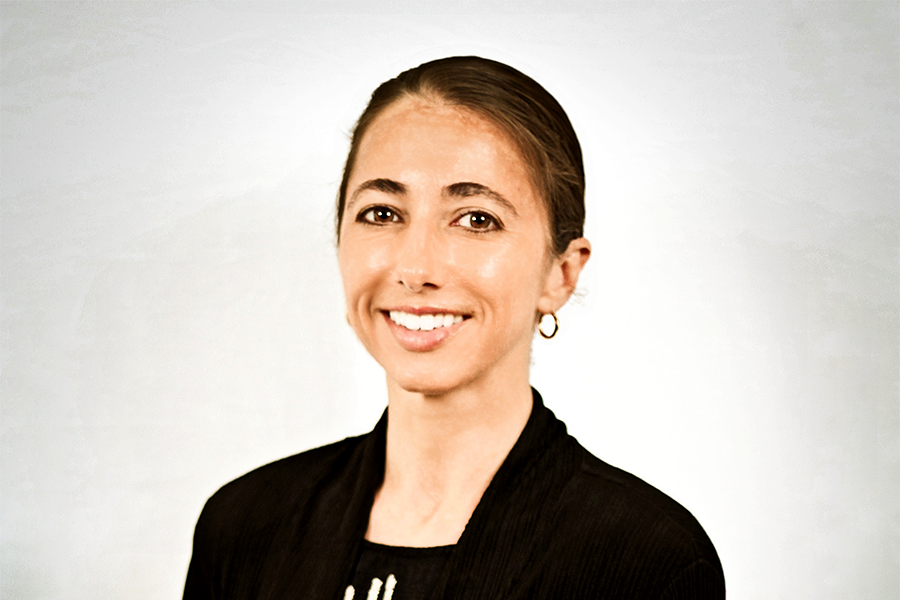Faculty spotlight: Tarez Samra Graban

Tarez Samra Graban is an associate professor in the Department of English, part of Florida State University’s College of Arts and Sciences. Graban earned her bachelor’s degree from Brown University in 1993 and her doctorate from Purdue University in 2006, and she’s just begun her 10th year at FSU. Graban’s teaching and research activities focus on intersections of rhetorical, compositional and feminist theories/ histories, as well as the digital humanities.
Tell us a little about your background and what brought you to FSU.
My interest in what I do at FSU began before graduate school. While I started out in book and magazine publishing, I wanted to do something that more explicitly connected writing to processes of knowledge-making. After a series of moves, including a master’s degree in education theory studying how composers work differently in traditional and networked environments, I became fascinated by histories of public discourse, which inspired me to pursue a doctorate in rhetoric. In that program, I began specializing in histories and theories of rhetoric in various cultures, and I never wanted to study anything else. Several years ago, a position opened up in FSU’s Rhetoric and Composition program that allows me to do just that.
You study a multitude of subjects; can you break down your areas of interest for us?
There are two areas I’m actively researching right now. In one area I call “institutional histories,” I trace the intellectual influence of women rhetoric instructors between 1890 and 1990, who are not often written into disciplinary histories or captured in institutional archives. Sometimes they were temporary faculty, sometimes they had very mobile careers, and sometimes our databases are constructed with a different set of values in mind that render female subjects invisible. The other area I’ll call “transnational archival research.” I study how women leaders, activists and academics from various Southern African countries are remembered or mis-remembered through the transnational circulation of their records and texts.
What inspired you to choose these fields of study?
During my doctoral program, I took my first history of rhetoric course. I was tasked with paying attention to when, how and where women began showing up in historical accounts as authors or subjects. I realized I was interested in applying that question to other cultures, besides those we studied in that course, and I just never stopped. Today, this interest extends beyond women, toward recovering underrepresented figures.
Tell us about the research you’ve conducted over the past few years involving women in Namibia, Malawi and South Africa.
These countries have had more women in premier leadership roles than the U.S. From an outsider's point of view, you'd think they have overcome misogynistic tendencies in the political sphere. But as I study their careers and the careers of other women, not just elected leaders, I realize they are encountering a multifaceted set of challenges. Sometimes they are elected, then ousted. Or, they have long, successful careers, but you can't find a coherent record of their accomplishments. I want to discern what I can about our mechanisms of remembering or not remembering.
In a two-party system, like in the U.S., we might swing more conservative or more liberal, but in certain Southern African nations, the political situation changes quite frequently. Such upheaval makes it challenging to conduct archival work, as is studying women figures through a postcolonial lens without fully understanding what it's like to emerge from colonization. An unintentional mistake we may make, as Western feminist scholars studying postcolonial figures, is to apply recovery frameworks that fail to capture the totality of situations in which they live. This research has also influenced how I teach. I've been able to employ new methods to get students to answer a different set of questions that I previously didn't know to ask.
How has COVID-19 impacted your role as an associate professor?
COVID-19 has affected everyone in any teaching position, as well as students. I love feeling the students’ energy in the classroom, and taking that online was difficult. I had to engage students in very different ways, but there were benefits to teaching on Zoom. There were times when I just had to expose my humanity, and students reciprocated. Since expectations had changed, I couldn't just come back in-person and do what I did before the pandemic.
Who are your role models? Who has influenced you most in your life?
My parents. My father was a displaced Palestinian refugee who immigrated to the U.S. to attend college. For most of my life before high school, we lived in the Middle East, so I had a very global upbringing. My mother was born in the U.S., but her family migrated to the West Coast from Kentucky by railroad. My parents are amazing individuals who faced numerous challenges early in life. They viewed life and education as gifts. They tried to do whatever they could to make life better for their children.
What do you want the public to know about your research? Why are your topics important?
My research topics center on recovery of underrepresented groups, individuals and texts because I understand memory to be a cultural construct. We determine how and what to remember based on deep-seated biases about what and who are worth remembering. Expanding our understanding of this requires willingness to look differently at who and what have been excluded from historical record, and to question the ways in which those exclusions perpetuate.
If your students only learned one thing from you (of course, hopefully they learn much more than that), what would you hope it to be?
It’s possible that I learn more from them than they do from me! I hope they become more thoughtful readers, more nuanced writers and more critical engagers of information. I hope they embrace complex situations or difficult conversations and use them as opportunities for empathy and making themselves understood.
